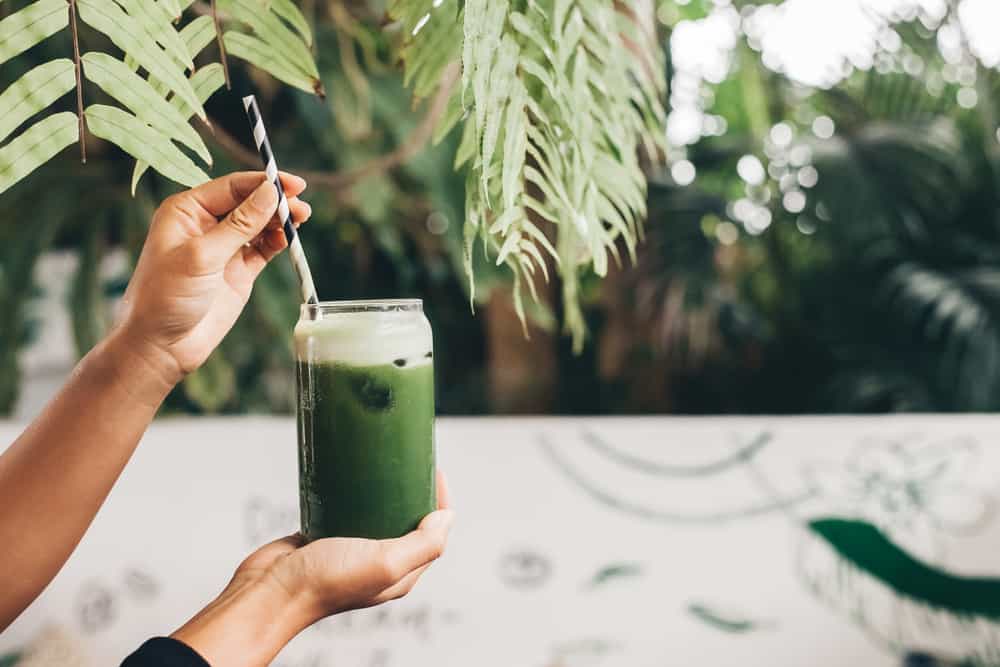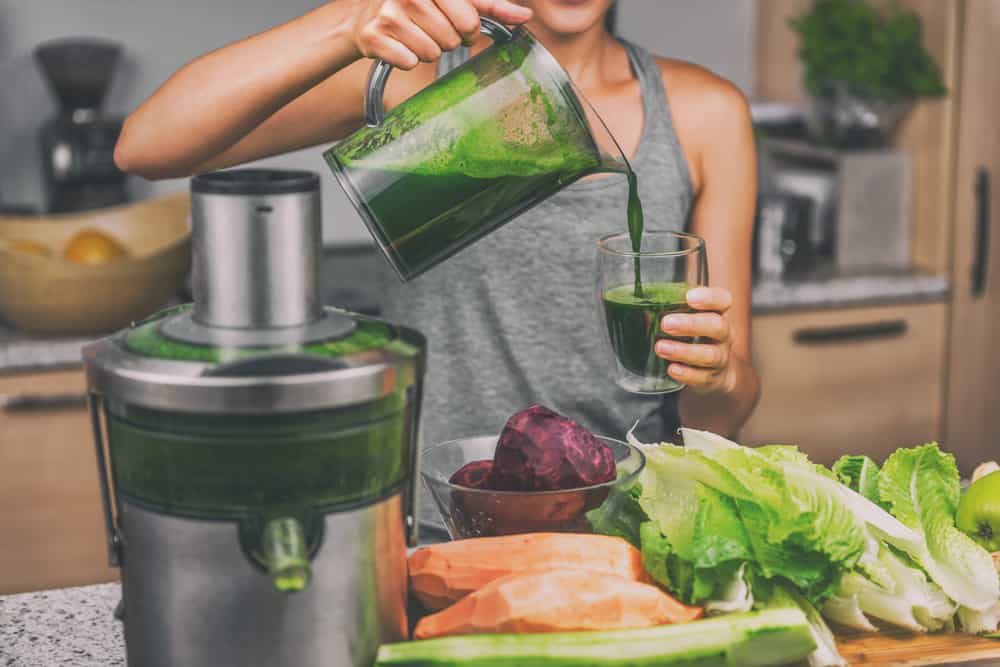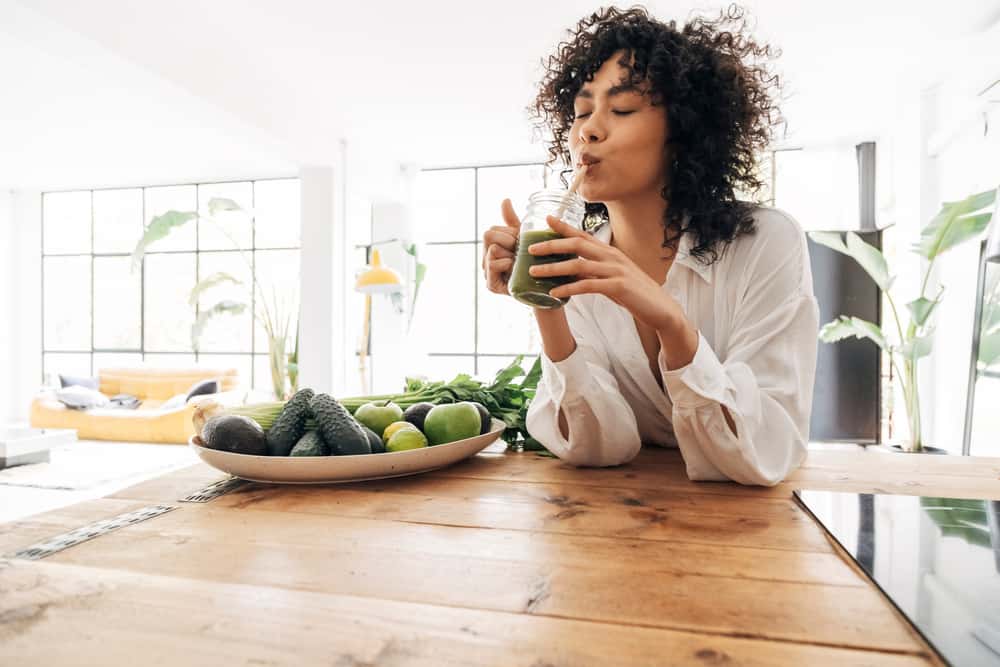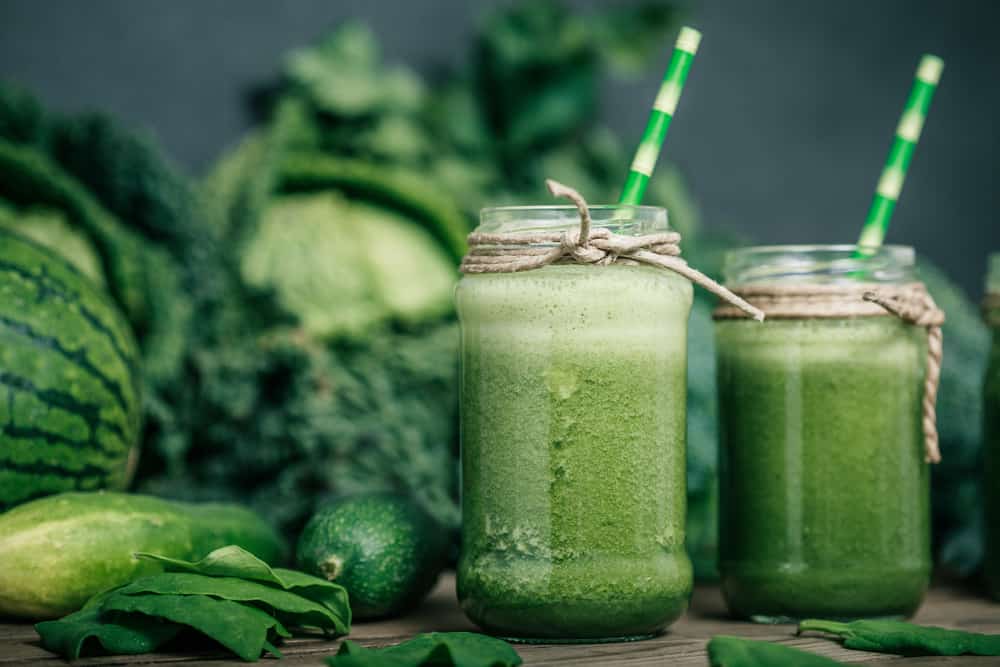
Health has become the top priority over the last decade with the rapidly declining climatic conditions and changes in diet. Also, for athletes or gym goers, green juice holds similar significance to their training routine. So, drinking green juice is healthy.
The overall intake of veggies has declined over the years. According to several studies, the average American citizen doesn’t even reach the 50% mark of the recommended amount if we consider eating vegetables in their diet.
So, the alternative of making green juice can help you achieve the perfect diet, help you guzzle it down, and prioritize your health. But this begs the need for this question, how much green juice should you drink daily?
Drinking 2-4 cups daily of green juice (alternatively 16-32 ounces) is the optimum amount. It doesn’t have to be a single serving; you can alternate between morning and evening. The store-bought green juice comes with its fair share of troubles, so try to make it yourself.
Here, we will tell you how to make green juice and why you should and shouldn’t drink green juice, i.e., their health benefits and adverse effects.
How To Make Green Juice at Home

The primary ingredients to get started are vegetables (+green fruits) and a juicer that can mash these veggies down to a paste. Also, if your ingredients are dry, it is best to add some water to get the juicer going.
When you have selected a juicer, get your veggies and fruits lined up, all you have to do is blend them in the juicer to make your green juice, but it doesn’t end there.
Drinking green paste if you don’t like vegetables is nothing short of punishment, so the recommended option is to go for vegetables and fruits that you like or can eat without holding your breath.
Make a base of these, and add half-full lemon (for 1-2 cups, respectively) to make the juice more palatable while keeping it healthy. Then add the main vegetables and fruits to finish it off.
If it is still too much for you, try market green juices, which come with a milder taste and a large variety, but you have to compromise on the health benefits. Also, the juice cost will rack up, causing you quite a penny in turn.
When going for market green juice, it is best to reduce the recommended amount to 1.5 cups as a starter, with a max amount of 3-3.5 cups.
When Should You Drink It?

Drinking green juice in the morning, especially on an empty stomach, maximizes the benefits you can get from drinking it but making it a daily routine can do you more harm than good.
So, it is best to drink the juice in moderation, as the excess of everything is bad. That is why eating raw vegetables to get the nutrients left behind in the form of beaten pulp is crucial.
While the morning is the best time for you to get your dosage of green juice, you can also enjoy it in the evening or between meals.
Benefits and Demerits of Green Juice

Before going into the demerits and benefits, let us be clear about the fact that green juice isn’t an alternative to your regular veggies and fruit intake.
The pros and cons of green juice are as follows:
Pros
The benefits of drinking green juice are as follows:
1. Keep Your Energy Levels Up
The first benefit comes in the form of extra energy to keep you going for the day. It is due to no need for excess energy to spend on the digestion of this juice.
2. Anti-Inflammatory Action
This benefit is loosely intertwined with keeping you healthy and preventing chronic conditions. Drinking a glass of green juice in the morning balances the acidity built-up overnight and maintains the smooth functioning of organs.
3. Has Probiotics and Builds Immunity
Green juice contains probiotics that help aid digestion. These probiotics help maintain the functionality of the digestive tract but also help in building immunity.
But the main immunity factor comes from Vitamin C, which can be enhanced by adding lemon juice to your green juice.
5. Weight Loss
Green juice passes through your system quickly and contains little to no calories, so often chosen for weight loss.
Cons
Following are some demerits of drinking green juice instead of eating vegetables as a whole:
6. No or Low Fiber
The first problem comes from the no or minuscule fiber in the juice, which is essential to tackle various issues, including digestive and heart conditions, and keeps sugar intake under control.
7. Harmful to Kidneys
Green juice is rich in mineral content, meaning your kidneys work extra hard to filter these. So, if you have a kidney issue or are at a higher risk of developing kidney stones, it is best to avoid it.
8. Can Increase the Risk of Diabetes
Green juices contain fruits (natural sugar) and don’t have essential ingredients to keep your sugar level under check. So added sugar in these can increase your risk of contracting diabetes, which is the case for market green juices, especially if you are at risk of developing type-2 diabetes.
9. Undernourishing but Weight Gain
While you may be thinking of green juice as a weight loss remedy; however, if you solely rely on it, it can do exactly the opposite.
For example, if you only take veggies and fruits from green juice, you will miss out on essential elements, creating an imbalance. It will make you hungrier, which is directly related to excessive eating. And clearly, more eating equals weight gain.
Takeaway
To wrap up, remember to keep things in moderation for the best result possible. Adding 1-2 cups per day of green juice to your diet, if it is healthy and contains a mix of vegetables and fruits, is well and good.
However, if you solely want to rely on green juice for the nutrients you get from vegetables or fruits, you are best not going that route. So, combine 16-32 ounces of green juice with a healthy diet daily to maximize the effect of green juice.









